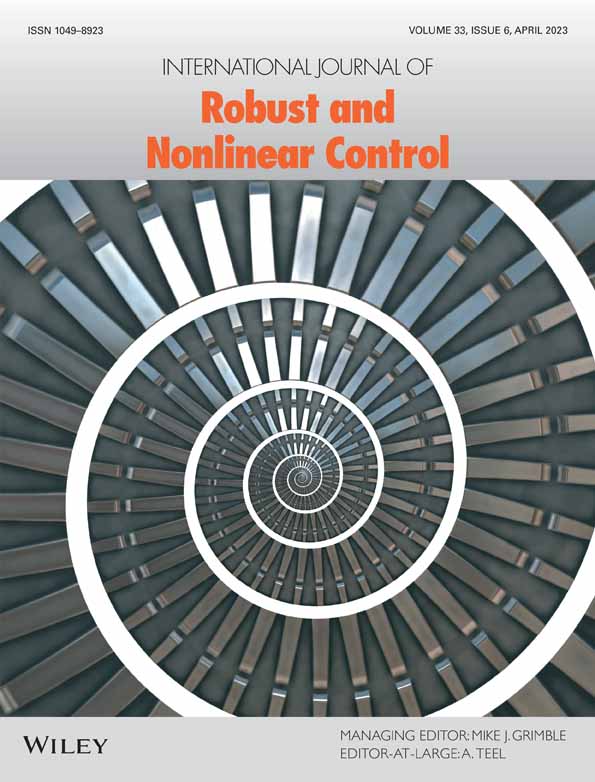Practical output regulation for nonlinear multiagent systems with event-triggered control protocol under directed switching networks
Funding information: Natural Science Foundation of Jiangsu Higher Education Institutions of China, Grant/Award Number: 22KJB510021; High-Level Talent Scientific Research Foundation of Jinling Institute of Technology, Grant/Award Number: jit-b-202119; China Postdoctoral Science Foundation, Grant/Award Numbers: 2021M700770, 2022T150116; Jiangsu Planned Projects for Postdoctoral Research Funds, Grant/Award Number: 2021K107B; the Major Project of the Natural Science Foundation of the Jiangsu Higher Education Institutions of China, Grant/Award Number: 21KJA120001
Summary
In this paper, the event-triggered-based cooperative global robust practical output regulation problem is studied for nonlinear multiagent systems with directed switching networks. Firstly, the considered problem can be resolved with a prerequisite where the problem is solvable by an input-to-state stabilizing controller with measurement feedback. Specifically, the considered problem can be converted into a stabilization one for the so-called augmented system through the canonical internal model construction. Then by combining the multiple Lyapunov functions (MLF) with the average dwell time (ADT) method, it is demonstrated that this stabilization problem can be solved by output feedback with measurement disturbances, which indicates a solution to the initial problem. At last, a suitable event-triggering mechanism is proposed to save communication resources and reduce computational burden among all the agents. Finally, a group of FitzHugh-Nagumo multiagent systems is provided to verify our theoretical results.
CONFLICT OF INTEREST
The authors declare no potential conflict of interest.
Open Research
DATA AVAILABILITY STATEMENT
Data sharing not applicable to this article as no datasets were generated or analyzed during the current study.




